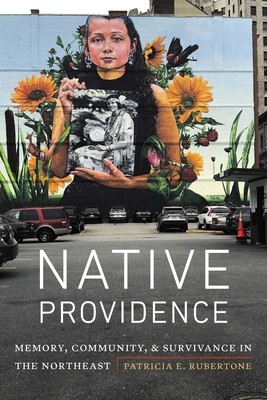
- We will send in 10–14 business days.
- Author: Patricia E Rubertone
- Publisher: University of Nebraska Press
- ISBN-10: 1496217551
- ISBN-13: 9781496217554
- Format: 15.2 x 22.9 x 3 cm, kieti viršeliai
- Language: English
- SAVE -10% with code: EXTRA
Reviews
Description
2021 Choice Outstanding Academic Title A city of modest size, Providence, Rhode Island, had the third-largest Native American population in the United States by the first decade of the twentieth century. Native Providence tells their stories at this historical moment and in the decades before and after, a time when European Americans claimed that Northeast Natives had mostly vanished. Denied their rightful place in modernity, men, women, and children from Narragansett, Nipmuc, Pequot, Wampanoag, and other ancestral communities traveled diverse and complicated routes to make their homes in this city. They found each other, carved out livelihoods, and created neighborhoods that became their urban homelands--new places of meaningful attachments. Accounts of individual lives and family histories emerge from historical and anthropological research in archives, government offices, historical societies, libraries, and museums and from community memories, geography, and landscape. Patricia E. Rubertone chronicles the survivance of the Native people who stayed, left and returned, who faced involuntary displacement by urban renewal, who lived in Providence briefly, or who made their presence known both there and in the wider indigenous and settler-colonial worlds. These individuals reenvision the city's past through everyday experiences and illuminate documentary and spatial tactics of inequality that erased Native people from most nineteenth- and early twentieth-century history.EXTRA 10 % discount with code: EXTRA
The promotion ends in 23d.01:42:42
The discount code is valid when purchasing from 10 €. Discounts do not stack.
- Author: Patricia E Rubertone
- Publisher: University of Nebraska Press
- ISBN-10: 1496217551
- ISBN-13: 9781496217554
- Format: 15.2 x 22.9 x 3 cm, kieti viršeliai
- Language: English English


Reviews